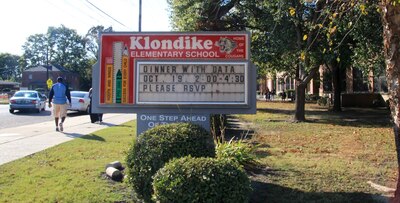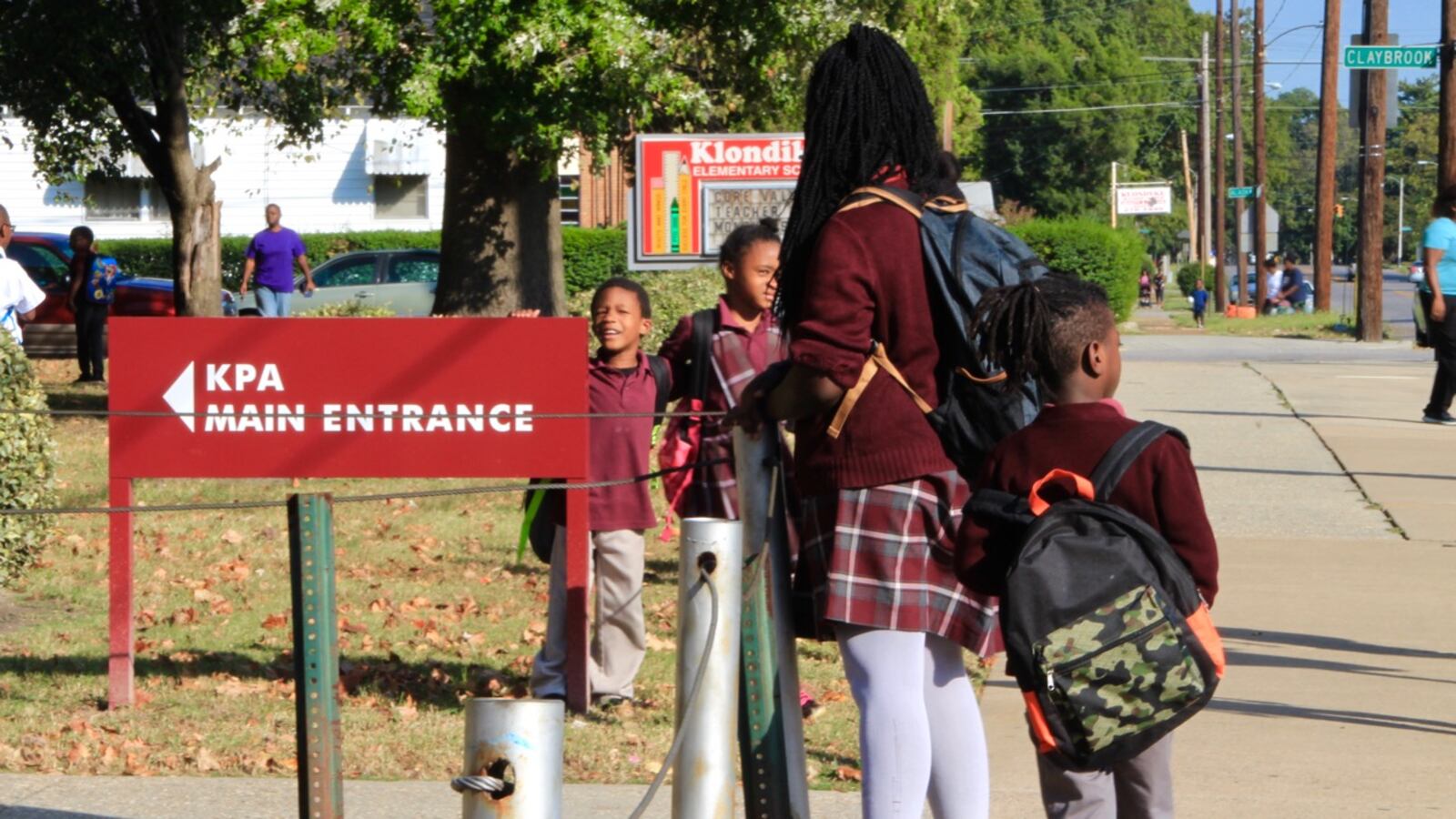For the first time, the Achievement School District is working with a local district to return a school that the state took over with the promise of an academic turnaround — but not because it’s delivering on that pledge.
Almost four years after taking control of Klondike Elementary, the ASD will close the Memphis school this month after its charter operator exits due to low enrollment.
That means Shelby County Schools will be figuring out what to do with a mostly empty building, not a revitalized school, when Klondike returns to its fold this summer.
That wasn’t the plan when the state-run district took control of the North Memphis school in 2013. For all the upheaval generated by the ASD’s heavy-handed takeover approach, the vision was high-minded: Shake up chronically low-performing schools by bringing in high-quality charter operators to turn things around quickly, then return the schools to their local district to raise the community’s bar for public education.
But in North Memphis, where the school-age population has been in decline, the order was taller than expected by leaders of the ASD and its Memphis-based charter operator for Klondike. As student enrollment dropped steadily and hit under 200 this school year, it became prohibitive to put in place the academic supports necessary for turnaround, according to the CEO of Gestalt Community Schools. State and local leaders concurred, announcing plans to close Klondike as its students are assigned this fall to another low-performing school.
That makes Klondike’s transition back to Shelby County Schools more about real estate than education, adding another distraction to a local district that’s already drowning in building-related costs. The property will join a growing inventory of empty and repurposed buildings — former schools that have been shuttered over decades due to shrinking enrollment, poor academic performance, and high maintenance costs.
Real estate is part of the delicate partnership that the state-run district has with the local school system.

The majority of the ASD’s 31 Memphis schools are turnaround schools that once were operated by the local district. At least 20 are housed in buildings still owned by Shelby County Schools. Under state law, when the ASD takes control of a local school, it’s responsible for students and teachers, but not the building itself. Neither the state-run district, nor its charter operators, pay rent or cover large capital needs such as a new roof.
This summer after Gestalt exits, members of Shelby County Schools’ facilities team will assess the condition of Klondike’s building and inventory its contents, similar to what they did in 2013 when turning over the school to the ASD under a state order. They’ll find a building needing about $2.7 million in repairs, according to 2016 district report. That’s all on Shelby County Schools, which already has a backlog of maintenance needs totaling $476 million.
Klondike is a historic neighborhood school, tracing its roots to a 1902 building where African-American children were educated. Its next iteration — and whether that will involve public education — is uncertain.
For now, the district has renewed its lease for one section of Klondike with Perea Preschool, a private Christian school that will serve more than 160 children in a building designed for more than 600.
“We’re excited (Perea Preschool) can stay in the building,” said Billy Orgel, who chairs the school board’s facilities committee. “It’s a much better use of space than it standing empty.”
Perea also has applied to open a charter school at Klondike under Shelby County Schools to serve elementary-age students with a focus on social-emotional learning. The school board will make a decision by August.
For their part, ASD leaders acknowledge that returning a school building isn’t the same thing as returning a school. But it’s necessary, they say, when a school operation can’t be sustained. They also remain optimistic about fulfilling their mission at other state-run schools, even as many struggle with enrollment, too.
“The DNA of the ASD is to return schools to their home district. That wasn’t the case with Klondike, but we’re struggling with a citywide problem … of too many school buildings and not enough kids,” said Bobby White, chief of external affairs for the ASD. “But the ultimate goal of the ASD — and what we’re striving for every day — is to hand back these schools when they are able to make it off of the priority list. That’s a win for us.”

